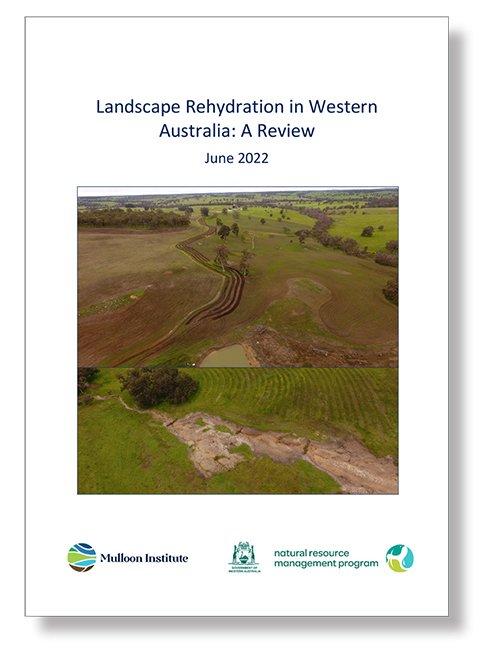The Mulloon Institute has conducted a literature review on landscape rehydration as a part of our ‘WA Community Stewardship Grant: Landscape Rehydration Trial and Demonstration in the Wheatbelt of WA’.
The literature review has consolidated knowledge from a variety of research, resources and stakeholders to understand the impacts of landscape rehydration on stream and floodplain dynamics, mitigating existing land degradation, farm productivity and landholder profitability in Western Australia.
Available research and documented case studies showed that landscape rehydration works play an important role in stabilising erosion, reducing stream sediment pollution, increasing water and nutrient availability across the landscape, ameliorating waterlogging, and facilitating extensive native revegetation. There is no independent, quantitative evidence that landscape rehydration will alleviate dryland salinity by increasing freshwater recharge, however, emerging case studies in WA indicate that Landscape Rehydration works can drive a surge in native vegetation, which provides a beneficial role in mitigating dryland salinity.
Research also shows landscape rehydration works, complemented by managed grazing regimes, can substantially improve pastoral productivity. While the positive profitability outcomes are not well documented, an opportunity exists for the economic viability of Landscape Rehydration to improve as available knowledge, resources and support services become available.
DOWNLOAD IT HERE:
‘Landscape Rehydration in Western Australia: A Review’
For more about the project, contact Lance Mudgway at lance@themullooninstitute.org or 0428 546 971.
